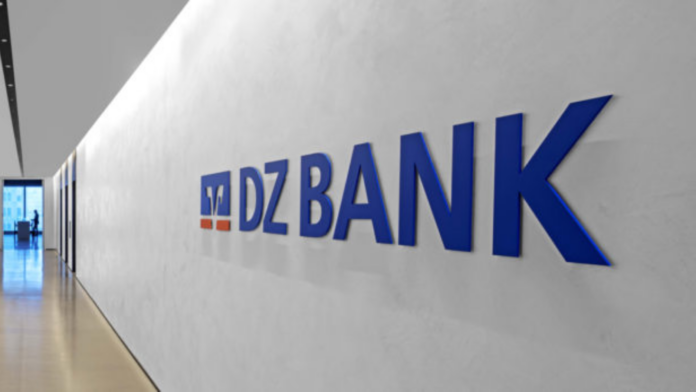In a progressive stride into the future of finance, DZ Bank, a titan in the German banking sector, has announced its foray into the digital asset space with a new crypto custody service tailored for institutional clientele. At the heart of this innovation is Ripple’s groundbreaking technology, heralding a new chapter where traditional finance and digital currencies converge.
The Pulse of Progress: Ripple’s Role in Financial Evolution
The winds of change are unmistakable as the financial world not only embraces but also integrates blockchain’s revolutionary capabilities. Banking behemoths, previously cautious, are now dipping their toes into the crypto pool, reflecting a burgeoning interest in the sector’s potential. DZ Bank, an integral part of the Volksbanken Raiffeisenbanken cooperative financial network, is spearheading this transition with its latest move.
Launching what’s touted as a premier commercial digital asset custody service for institutional actors, DZ Bank is setting a precedent. This launch is more than just a new service—it’s a declaration that DZ Bank is aligning with the future, becoming one of the first regulated German banks to offer crypto-related services to a discerning institutional demographic.
Under the German Electronic Securities Act, the bank is not only poised to store digital securities but also to settle them, a capability that underlines the growing fusion of traditional banking and cryptocurrency.
Synergy and Security: DZ Bank’s Collaboration with Metaco
In its quest for excellence, DZ Bank didn’t cast its net far. Metaco, a recent Ripple Labs acquisition, offers Harmonize™, a cutting-edge digital asset custody platform. This collaboration, forged after meticulous evaluation and a proof-of-concept phase, showcases Metaco’s Harmonize™ as the linchpin for DZ Bank’s new service offering.
Harmonize™ is touted for its robust security features and its scalable architecture—qualities that resonate with DZ Bank’s vision. The bank, known for its stringent adherence to regulatory compliance and security, found a kindred spirit in Ripple’s Metaco, ensuring a synergy that is both innovative and secure.
This alliance is emblematic of a broader narrative—a story of traditional finance meeting the digital asset economy head-on. With this partnership, both entities signal a commitment to a seamless and secure transition into an age where digital assets are as commonplace as their fiat predecessors.
The Ripple Effect in Institutional Crypto Custody
The decision to implement Ripple’s technology signifies more than a mere operational upgrade; it’s a strategic alignment with the future. By adopting a platform that can nimbly adapt to the ever-shifting landscape of digital finance, DZ Bank is not just future-proofing its services—it’s reshaping the contours of institutional investment.
The arrival of DZ Bank’s digital asset custody service is a clarion call to the industry. It signals the readiness of established financial institutions to uphold the same rigor in the digital asset space as they have historically maintained in traditional banking. For institutional clients, this promises a level of service that’s not only innovative but also secure and compliant with the rigorous standards expected in Germany’s regulated financial environment.
A Harmonious Future for Digital Assets and Traditional Banking
DZ Bank’s venture into digital asset custody, powered by Ripple’s technology, marks a significant milestone in the financial industry. It’s a testament to the potential for harmony between conventional banking practices and the burgeoning world of cryptocurrencies.
As the service goes live, it’s clear that the journey towards a fully-integrated financial ecosystem—one that embraces digital assets wholeheartedly—is well underway. For institutions ready to explore this new frontier, DZ Bank’s latest offering isn’t just a service; it’s a gateway to the next evolution of finance.
In an industry where innovation is currency, DZ Bank has made a wise investment. As it stands at the cusp of tradition and innovation, the message is unequivocal: the future of finance is here, and it is digital.















